January 3 Peace Love Art Activism
BLACK HISTORY
William Tucker
January 3, 1624: the baptism of William Tucker, the first African-American birth recorded in Jamestown, VA. His parents, simply Anthony and Isabella, were two of the first Africans brought to North America in 1619 (perhaps as indentured servants). They married and in 1624, gave birth to the first black child born in English America. He was named after his family’s master, Captain William Tucker.(see September 17, 1630)
NAACP report
January 3, 1947: an NAACP report said 1946 was “one of the grimmest years in the history of the National Association for the Advancement of Colored People.” The report deplored “reports of blow torch killing and eye-gouging of Negro veterans freshly returned from a war to end torture and racial extermination” and said “Negroes in America have been disillusioned over the wave of lynchings, brutality and official recession from all of the flamboyant promises of post war democracy and decency.” (next BH, see Jan 15; next Lynching, see July 14, 1948; for expanded chronology of lynching, see also AL4)
Montgomery Bus Boycott
January 3, 1956: because of drastically reduced ridership during the boycott, Montgomery City Lines suggested to the city commission that unless fares were doubled, it would have to shut down because it was losing as much as twenty-two cents a mile. The Commission approved the fare increase the following day. (see Montgomery for much more)
Samuel Younge Jr
January 3, 1966: twenty-one-year-old Tuskegee Institute student activist and veteran Samuel Younge Jr spent the day registering black voters in Macon County, Alabama. He stopped at a gas station to use the restroom. The white attendant, 68-year-old Marvin Segrest, directed him to the “colored” restroom out back. When Younge said he wanted to use the regular public restroom, Segrest threatened to shoot him.
Younge reported Segrest to the police, then returned to the gas station and told Segrest the police were coming. The two men argued and Segrest shot at Younge, who hid in a bus. When he exited the bus, Segrest shot him in the head, killing him.
The shooting exacerbated tensions in Tuskegee between African Americans and pro-segregation whites. The day after the shooting, Tuskegee students launched protests that lasted for weeks.
In December 1966 an all-white jury took 70 minutes to acquit Segrest.
Today Younge’s name is carved on the Civil Rights Memorial in Montgomery, Alabama, a tribute to the 40 people who were slain between 1954 (the year the U.S. Supreme Court banned school segregation) and 1968 (the year of Martin Luther King Jr.’s assassination). (see Jan 7)
Shirley Chisholm
January 3, 1969: Shirley Chisholm, became the first black woman in Congress. (see Jan 23)
SOUTH AFRICA/APARTHEID
January 3, 1994: more than 7 million people received South African citizenship that had previously been denied under Apartheid policies. (see Apr 27)
Hurricane Katrina
January 3, 2007: seven New Orleans policemen charged in a deadly bridge shooting in the chaotic aftermath of Hurricane Katrina turned themselves in at the city jail, and more than 200 supporters met them in a show of solidarity. Each of the indicted men faces at least one charge of murder or attempted murder in the Sept. 4, 2005, shootings on the Danziger Bridge less than a week after the hurricane hit New Orleans. Two people died and four were wounded in the shooting. (see Katrina for expanded chronology)
January 3 Peace Love Art Activism
Native Americans
In the late 1800s, the United States government sought to “Americanize” the Indian population by forcing Native American children into white schools, often far from their homes and families. In 1887, the government established Keams Canyon Boarding School and pressured Native American parents from the Hopi tribe to enroll their children. Hopi families that complied with the government’s order and sent their children to school were deemed “Friendlies,” while those who refused were branded “Hostiles.” When most parents refused to part with their children voluntarily, the government resorted to force, sending soldiers to round up children and send them to Keams Canyon.
At the same time, tensions were rising regarding the limited land that the government had allotted to Indian tribes. In October 1894, fifty Hopi returned to farm on land that had traditionally belonged to their tribe. The U.S. government, claiming to act in defense of the rights of Friendlies, responded by ordering troops to arrest the Hopi leaders. Justifying the order for military involvement, one government official wrote that “[t]he Friendlies must be protected in their rights and encouraged to continue in the Washington way. . .”
On January 3, 1895, the US govern met imprisoned nineteen leaders from the Hopi tribe on Alcatraz Island, in the San Francisco Bay. The government charged them with sedition for opposing the program of forced education and assimilation. The San Francisco Chronicle reported that “[n]ineteen murderous-looking Apache Indians” had been arrested and taken to Alcatraz, “because they would not let their children go to school.” The paper added that they “have not hardship aside from the fact that they have been rudely snatched from the bosom of their families and are prisoners and prisoners they shall stay until they have learned to appreciate the advantage of education.” The Hopi leaders were imprisoned in the wooden cells of Alcatraz for nearly one year. (see May 18, 1896)
January 3 Peace Love Art Activism
ADA
National Foundation for Infantile Paralysis
January 3, 1938, President Franklin D Roosevelt [a victim of polio at age 39 and paralyzed from the waist down and forced to use leg braces and a wheelchair for the rest of his life] helped found the National Foundation for Infantile Paralysis, later renamed the March of Dimes. The organization was responsible for funding much of the research concerning the disease, including the Salk vaccine trials. (polio, see April 26, 1954)
Hitler’s so-called mercy killings
In 1939: at the onset of World War II Adolph Hitler ordered widespread “mercy killing” of the sick and disabled. Code-named Aktion T4, the Nazi euthanasia program is instituted to eliminate “life unworthy of life.” Between 75,000 to 250,000 people with intellectual or physical disabilities are systematically killed from 1939 to 1941.
Rosemary Kennedy
In 1941: John F. Kennedy’s twenty-three year old sister Rosemary underwent a prefrontal lobotomy as a “cure” for lifelong mild retardation and aggressive behavior that surfaced in late adolescence. The operation fails, resulting in total incapacity. To avoid scandal, Rosemary was moved permanently to the St. Coletta School for Exceptional Children in Wisconsin.
Rusk Institute
In 1948: Dr. Howard A. Rusk founded the Rusk Institute of Rehabilitation Medicine in New York City, where he developed techniques to improve the health of injured veterans from World War II. His theory focused on treating the emotional, psychological and social aspects of individuals with disabilities and later became the basis for modern rehabilitation medicine.
Committee on Employment of the Handicapped
In 1950: in the 1950s, disabled veterans and people with disabilities begin the barrier-free movement. The combined efforts of the Veterans Administration, The President’s Committee on Employment of the Handicapped, and the National Easter Seals Society, among others, results in the development of national standards for “barrier-free” buildings.
Association for Retarded Citizens
In 1950: parents of youth diagnosed with mental retardation found the Association for Retarded Citizens (ARC). The association works to change the public’s ideas about mental retardation. Its members educate parents and others, demonstrating that individuals with mental retardation have the ability to succeed in life.
Fernald School
In 1953: Clemens Benda, clinical director at the Fernald School in Waltham, Massachusetts, an institution for boys with mental retardation, invited 100 teenage students to participate in a “science club” in which they will be privy to special outings and extra snacks. In a letter requesting parental consent, Benda mentions an experiment in which “blood samples are taken after a special breakfast meal containing a certain amount of calcium,” but makes no mention of the inclusion of radioactive substances that are fed to the boys in their oatmeal. (Waltham testing, see (see December 31, 1998; radiation testing, see October 17, 1995)
American National Standards Institute
In 1961: the American Standards Association, later known as the American National Standards Institute (ANSI), publishes the first accessibility standard titled, Making Buildings Accessible to and Usable by the Physically Handicapped. Forty-nine states adapt accessibility legislation by 1973.
Ed Roberts
In 1962: Ed Roberts, a student with polio, will enroll at the University of California, Berkeley. After his admission was rejected, he fought to get the decision overturned. He became the father of the Independent Living Movement and helped establish the first Center for Independent Living (CIL). He earned B.A. (1964) and M.A. (1966) degrees from UC Berkeley in Political Science. Roberts died on March 14, 1995, at the age of 56. (see October 31, 1963)
January 3 Peace Love Art Activism
January 3 Music et al
Sam Phillips
January 3, 1950: Sam Phillips opened the Memphis Recording Service at 706 Union Avenue in Memphis, Tennessee. The Memphis Recording Service let amateurs perform, which drew performers such as B.B. King, Junior Parker, and Howlin’ Wolf. Phillips then would sell their performances to larger record labels. In addition to musical performances, Phillips recorded events such as weddings and funerals, selling the recordings. (see Memphis Recording Service for more) (see March 3 or 5, 1951)
Beatles on Jack Parr
January 3, 1964: the “The Jack Paar Show,” aired a filmed Beatles’ performance of “She Loves You” from England. It was the first complete Beatles song shown on American TV, and for many in America, the first time they saw the Beatles. (see Jan 10)
Psychedelic Shop
January 3, 1966: the Psychedelic Shop head shop opens on Haight Street, S.F. (see Head Shop for more)
Bob Dylan
With The Band
January 3, 1974: following on the release of his and The Band’s Planet Waves album, the Tour ’74 began. The tour began in Chicago. (see May 9)
William Zantzinger
January 3, 2009: William Zantzinger died. In 2001, Zantzinger had discussed Dylan’s song Lonesome Death of Hattie Carroll with Howard Sounes for Down the Highway, the Life of Bob Dylan. Zantzinger dismissed the song as a “total lie” and claimed “It’s actually had no effect upon my life,” but expressed scorn for Dylan, saying, “He’s a no-account son of a bitch, he’s just like a scum of a scum bag of the earth, I should have sued him and put him in jail.” [LA Times obit] (see October 16, 2016)
January 3 Peace Love Art Activism
The Cold War
January 3, 1961: President Dwight D. Eisenhower closed the American embassy in Havana and severed diplomatic relations. The action signaled that the US was prepared to take extreme measures to oppose Castro’s regime, which U.S. officials worried was a beachhead of communism in the western hemisphere.(see Feb 18)
January 3 Peace Love Art Activism
Nuclear/Chemical News
Nuclear accident
January 3, 1961: Idaho National Engineering Laboratory. A steam explosion in reactor SL-1 during preparation for start-up destroyed a small US Army experimental reactor and killed three operators. (see Jan 24)
START
January 3, 1993: George H. W. Bush and Boris Yeltsin signed the second Strategic Arms Reduction Treaty (START). (see Jan 19)
Iran
January 3, 2020: BBC News reported that Iran had resumed enriching uranium to 20% purity, in its most significant breach yet of the 2015 nuclear agreement with world powers.
Government spokesman Ali Rabiei told Mehr news agency that the process had started at the underground Fordo plant. Iran had suspended a number of commitments since the US abandoned the nuclear deal and reinstated sanctions. (next N/C N, see Jan 15)
January 3 Peace Love Art Activism
Politics
January 3, 1964: Senator Barry Goldwater announced that he would seek the Republican nomination for President.
January 3 Peace Love Art Activism
Jack Ruby
January 3, 1967: waiting in prison for a retrial date, Jack Ruby died of lung cancer.
January 3 Peace Love Art Activism
DEATH PENALTY
Witherspoon v. Illinois
January 3, 1968: in Witherspoon v. Illinois the Supreme Court ruled that the practice of excluding prospective jurors who have reservations about the death penalty from capital trials resulted in juries whose sentencing decisions could be considered biased and therefore unconstitutional. (see February 18, 1972)
January 3 Peace Love Art Activism
Vietnam
January 3, 1968: Senator Eugene McCarthy (D-Minnesota) announced his candidacy for the Democratic presidential nomination. McCarthy had been a contender to be President Lyndon B. Johnson’s running mate in the 1964 election, but since then he had become increasingly disenchanted with Johnson’s policies in Vietnam and the escalation of the war. In 1967, he had published The Limits of Power, an assessment of U.S. foreign policy that was very critical of the Johnson administration. When announcing his candidacy, McCarthy said he hoped to harness the growing antiwar sentiment in the country, particularly among the young. (see Jan 5)
January 3 Peace Love Art Activism
Japanese Internment Camps
January 3, 1975: the US Government had interned Norman Minetta, as a child as part of the Japanese-American evacuation and internment during World War II. On this date, Minetta took his seat in the House of Representatives. representing the San Jose, California area. He served in the House until 1995 and later served as Secretary of Commerce under President Bill Clinton (2000–2001) and then Secretary of Transportation under President George W. Bush (2001–2006). (see JI for expanded chronology)
January 3 Peace Love Art Activism
Technological Milestone
January 3, 1996: the first mobile flip phone, the Motorola StarTAC, goes on sale. (see April 20, 1999)
January 3 Peace Love Art Activism
Cannabis
Medical Marijuana Act
January 3, 2006: Rhode Island’s Senate Bill 0710 (the Edward O. Hawkins and Thomas C. Slater Medical Marijuana Act) tooks effect immediately upon passage on January 3, 2006. The law removed state-level criminal penalties on the use, possession and cultivation of marijuana by patients who possess “written certification” from their physician… [and] establishes a mandatory, confidential state-run patient registry that issues identification cards to qualifying patients.(see April 20 or see CCC for expanded modern chronology)
January 3 Peace Love Art Activism
Iraq War II
January 3, 2007: death toll of U.S. soldiers in Iraq reaches 3,000. (see Jan 10)
January 3 Peace Love Art Activism
Volunteerism
January 3, 2008: the Bureau of Labor Statistics of the U.S. Department of Labor reported that about 60.8 million people volunteered through or for an organization at least once between September 2006 and September 2007,
January 3 Peace Love Art Activism
Occupy Wall Street
January 3, 2012: approximately 200 Occupy protesters performed a flash mob at the main concourse of New York’s Grand Central Terminal in protest against President Obama’s signing the National Defense Authorization Act. Video (see Jan 25)
January 3 Peace Love Art Activism
Feminism
January 3, 2013: British doctors discharged fifteen-year-old Malala Yousufzai, who was shot by the Taliban in October and brought to Britain for treatment, She was due to be re-admitted in late January or early February for reconstructive surgery to her skull. (Feminism, see Jan 9; Yousufzai, see Jan 10)
January 3 Peace Love Art Activism
STAND YOUR GROUND LAWS
January 3, 2013: research from Texas A&M University reported that over a 10-year period there was an 8 percent increase in homicides in the states that passed Stand Your Ground laws. The law did not deter burglary, robbery or assault either. “These laws lower the cost of using lethal force,” said Mark Hoekstra, an economist with Texas A&M University who examined stand your ground laws. “Our study finds that, as a result, you get more of it.” (see Feb 4)
January 3 Peace Love Art Activism
Women’s Health
January 3, 2014: the U.S. government asked the Supreme Court not to allow Roman Catholic-affiliated groups a temporary exemption from a part of the Obamacare healthcare law that requires employers to provide insurance policies covering contraception. Now that the court has received the government’s filing, Sotomayor – or the nine justices if she chose to refer it to the whole court – would decide whether the injunction should be extended while the case continues in lower courts. There was no deadline by which the court has to act. (see Jan 14)
January 3 Peace Love Art Activism
Immigration History
January 3, 2017: Washington State Attorney General Bob Ferguson sued Motel 6, alleging motel employees gave private information on thousands of guests to U.S. immigration authorities.
Ferguson told reporters that employees of the national budget chain divulged the names, birth dates, driver’s license numbers, license-plate numbers and room numbers of more than 9,000 guests to U.S. Immigration and Customs Enforcement agents. The agents did not have warrants.
The lawsuit said the motel employees’ actions violated state consumer-protection law.
Washington’s Supreme Court established that guest-registry information is private, Ferguson said, and Motel 6 violated the law each time it gave out private information. (next IH, see Jan 8; Motel 6, see April 4, 2019)
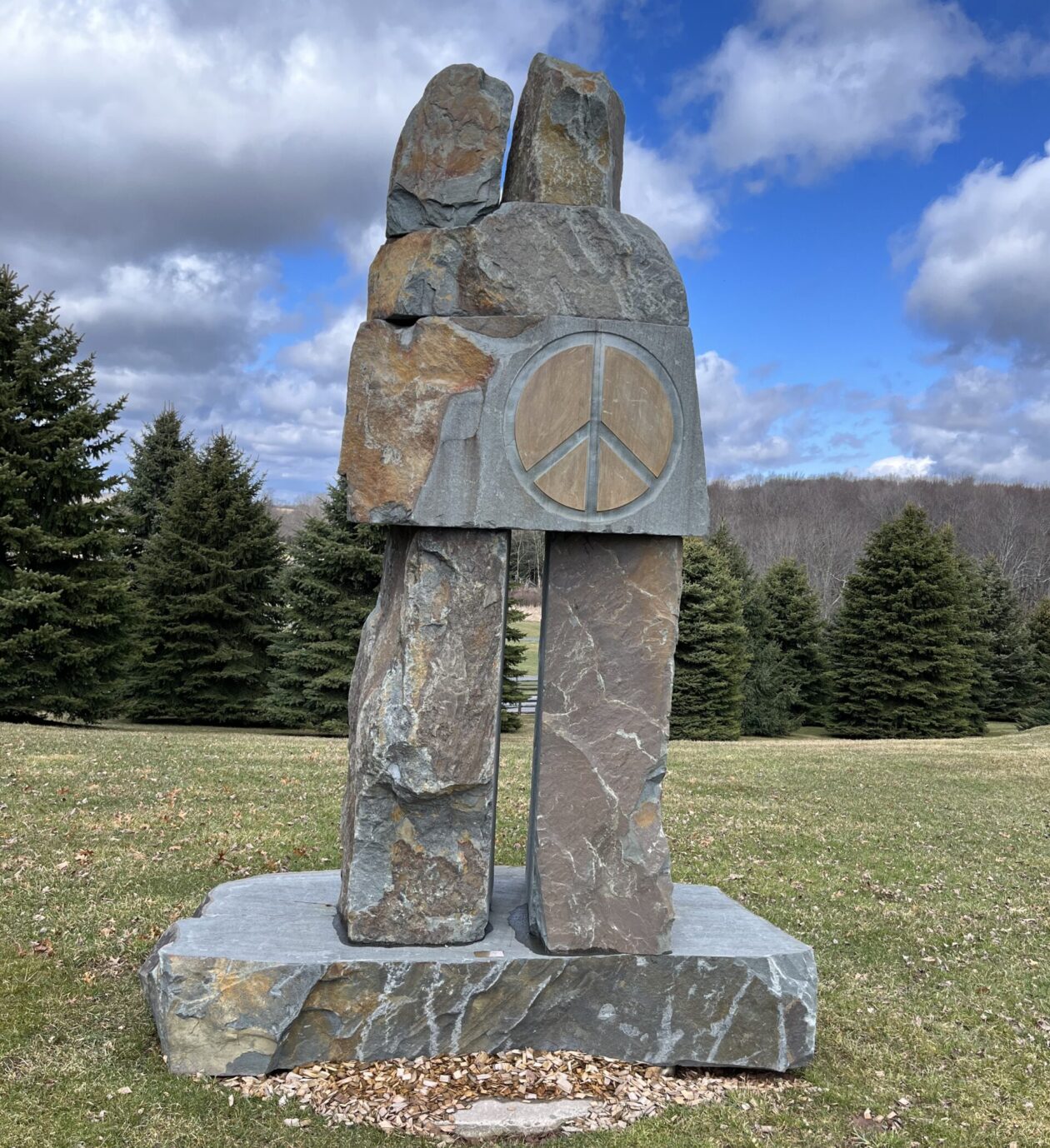
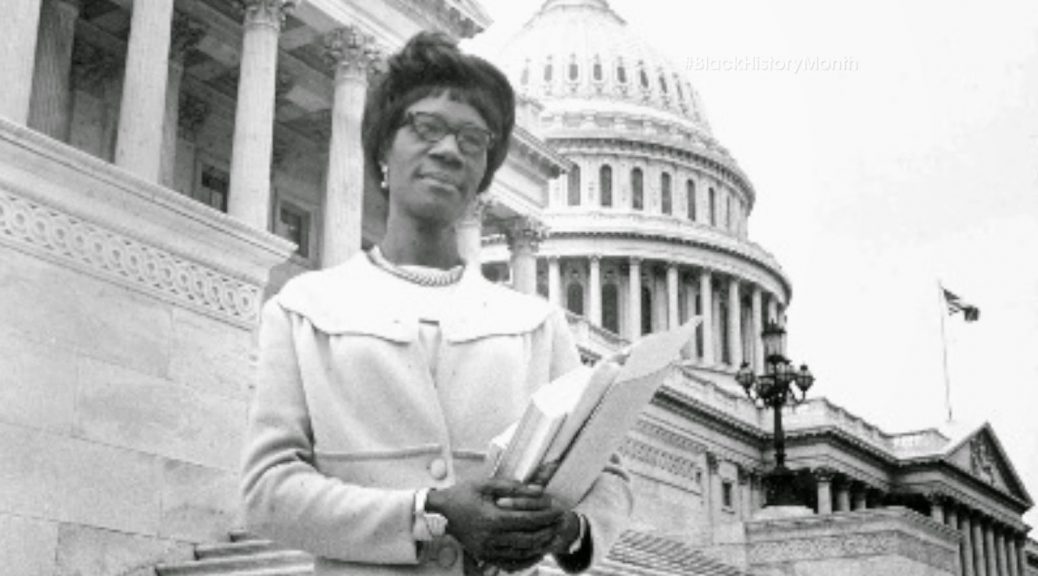
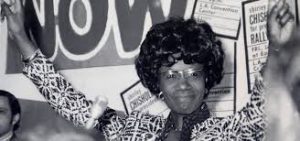
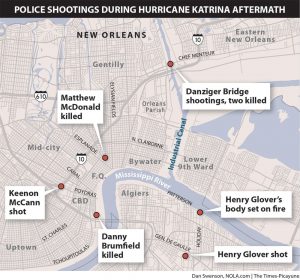
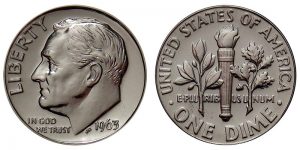

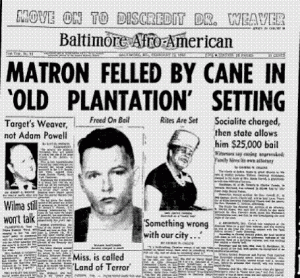

Students are using the NY Slave Revolt of 1712 as a jumping off point for a presentation about a walking tour of NY s important sites in African-American history. A lesson inspired by